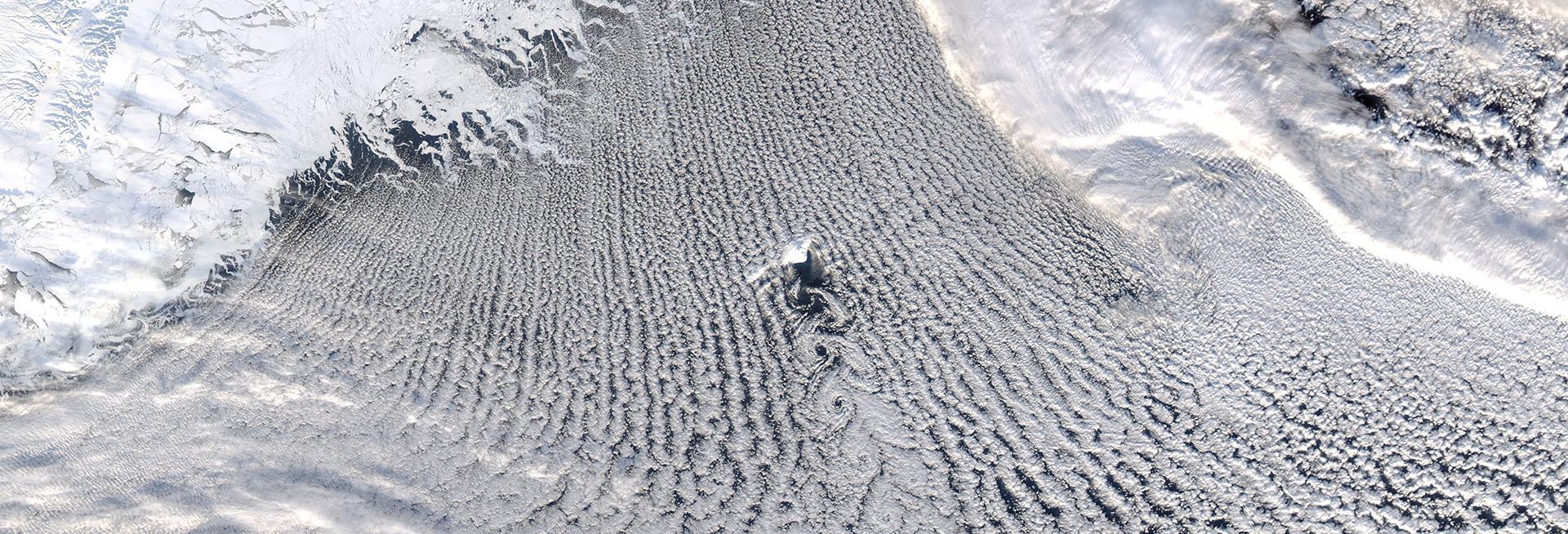Each year, Atmospheric, Oceanic and Planetary Physics offers summer vacation projects. These projects are open to students from any University but candidates must have an existing right to work in the UK.
Students will work with a supervisor in the Department, usually a research fellow or a faculty member (a list of projects offered this year is below), on a self-contained research project. Students are encouraged to take part in the Department’s life, joining researchers for coffee breaks, discussions and seminars.
The projects will typically run for 8 weeks, beginning on or around 1 July. The duration may be adjusted to be shorter or longer, or to accommodate summer travel. The projects are usually full-time but hours can be discussed with your supervisor. Students are paid slightly above the Oxford Living Wage (£11.92 per hour).
AOPP summer vacation projects:
Understanding the fluid mechanics of sea-ice deformation using drifting icebergs
Supervisors: Andrew Wells (Oxford); Emma Fiedler and Ed Blockley (UK Met Office)
Arctic sea ice is one of the most sensitive components of the Earth’s climate system, and provides key feedbacks on polar climate and weather. As the Arctic undergoes rapid change, there is increasing interest in high-resolution regional forecast models for the polar climate system with resolution at the kilometre scale. Sea ice models often describe the deformation and flow of sea ice as a complex fluid with non-Newtonian rheology based-on observed dynamics on the large scale of the Arctic basin, but there is a need to evaluate the accuracy of this approach for the kilometre scale processes that will be important for regional forecasting. This project will explore a new approach for evaluating sea-ice mechanics, using the observed motion of sea ice relative to drifting icebergs. From a fluid-mechanical perspective, the sea-ice deformation behaves like a 2-dimensional fluid flow past an immersed object where the pattern of flow depends on the mechanical properties of the sea ice. It thus provides a simple environmentally-realised experimental configuration in which to evaluate models.
The project will analyse data from satellite observations to determine patterns of sea ice motion past drifting icebergs, and compare this with numerical simulations of sea ice deformation from a state-of-the-art sea ice model. The project will be based at the University of Oxford, but with interaction from scientists engaged in operational sea-ice modelling at the UK Met Office. There will be the opportunity to interact with a range of researchers in regular group meetings. Funding from the Oxford Met Office Academic Partnership is available for a project duration of up to 8 weeks during the summer vacation, with some flexibility over the exact dates.
Skills Required
This project would suit a student from the physical sciences or mathematics, with background knowledge of mathematical modelling of physical systems and prior experience of programming. No prior knowledge of Arctic sea ice modelling is required.
How to Apply
Applicants should email a CV, name and contact details of one academic reference, and a short cover letter explaining their interest in this placement to andrew.wells@physics.ox.ac.uk. Please feel free to contact Andrew Wells with any queries regarding this placement.
Applications will be reviewed on an ongoing basis until the position is filled, with review of applications commencing on Friday 10th May 2024.
Summer Research Experience Placements (REPS) are available via the NERC DTP in Environmental Research. These are mini projects of 6-10 weeks that are undertaken in departments within a research group and with supervision of a senior academic. Further information can be found on the NERC DTP webpages.
Applications for the Summer Research Experience Placements (REPS) will open shortly.
For 2024, Atmospheric, Oceanic and Planetary Physics is offering 3 UNIQ+ Research Internships. UNIQ+ Research Internships are designed to provide students from under-represented and disadvantaged backgrounds who are ordinarily resident in the UK with the opportunity to experience postgraduate study. During the seven-week programme, which will run from Monday 1 July to Friday 16 August 2024, you will undertake a research project, attend training skills and information sessions, and have the opportunity to take part in events. Further information can be found on the UNIQ+ webpages.
Applications for the UNIQ+ Projects for 2024 are now closed.

